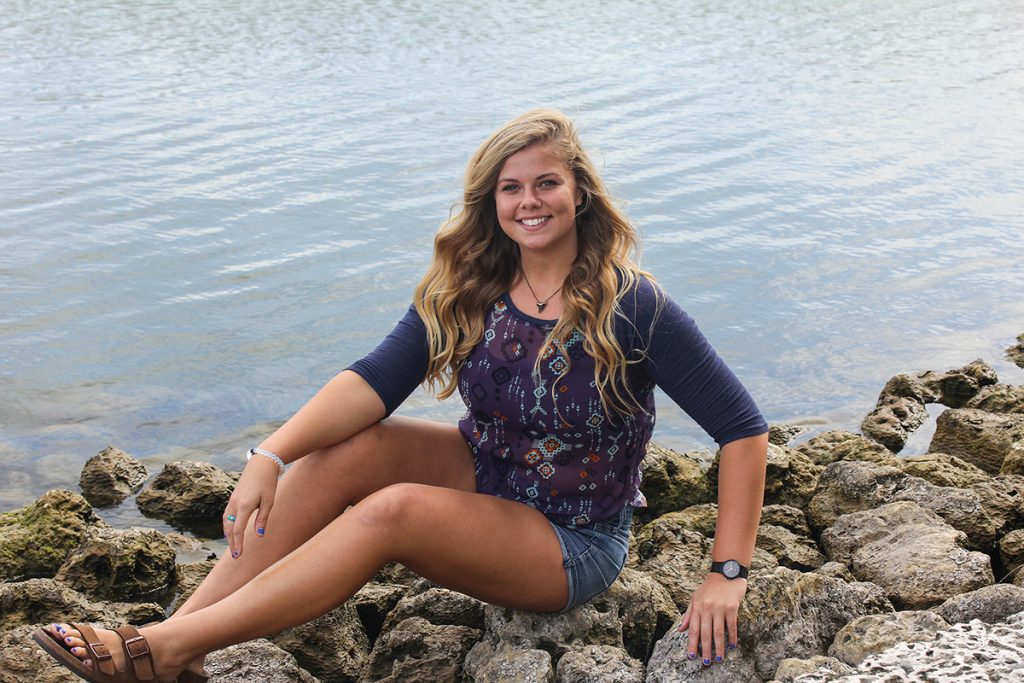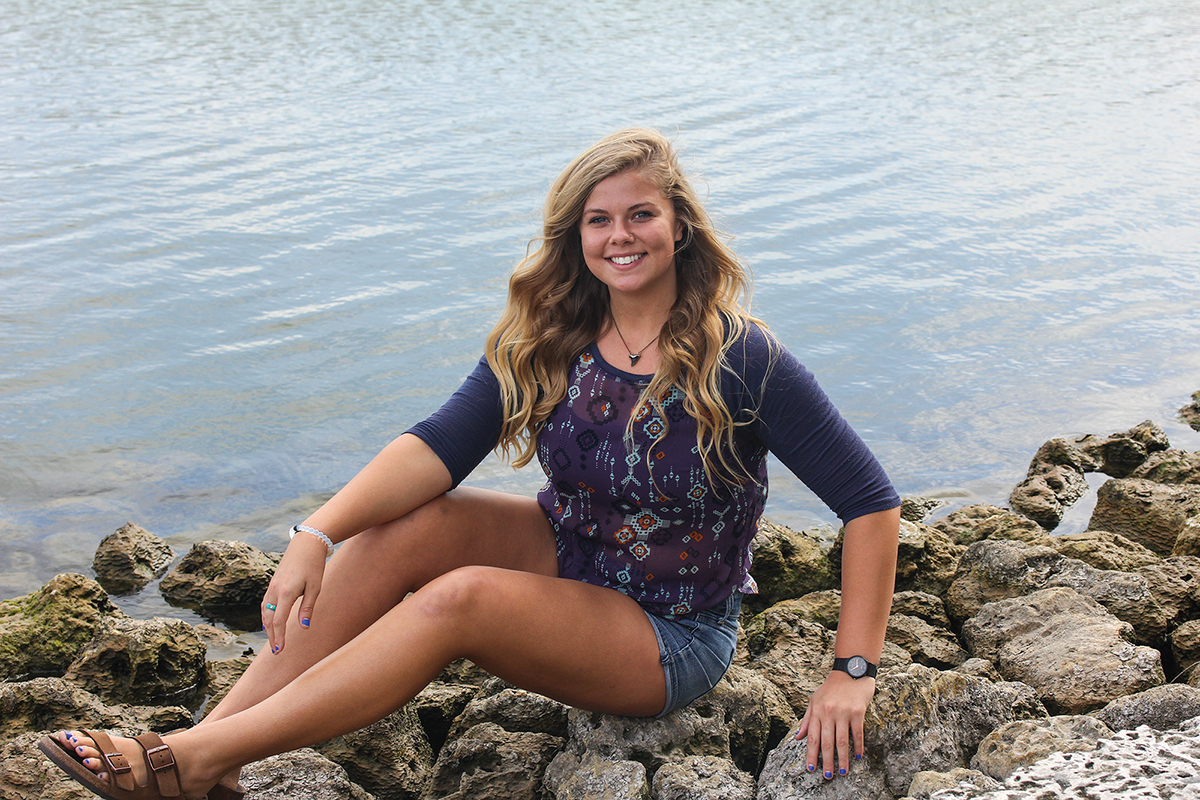
Hallee Meltzer // Photo Editor
When not in the classroom, you can likely find Kirstie Tandberg out on the water. A marine science and microbiology and immunology double major, Tandberg is graduating a year early to sail across the Atlantic Ocean and the Mediterranean Sea as a crew member for Atraxia, a 50-feet long live-aboard boat. During her three years at UM, Tandberg has been involved with marine science research with Dr. Mike Schmale and surfing, sailing and scuba diving. In her sophomore year, Tandberg participated in the Science Under Sail Institute for Exploration (SUSiE) marine science research program.
The Miami Hurricane: When did you first start exploring the idea of sailing after college? What do you hope to accomplish or gain from this experience?
Tandberg: I grew up on the water and around the shipping industry because of my dad, but I was first introduced to sailing by participating in SUSiE. In my two weeks aboard the sailboat in the Exumas Cays in the Bahamas, I not only got the opportunity to conduct ground-breaking coral-reef research, but I also fell in love with sailing and being close to the ocean. I decided that I wanted to live aboard a sailboat and start my own biotech company for marine-drug development. A fellow SUSiE alumni told me about his plans to crew with Atraxia after graduation, so I contacted them as well and was accepted to join their transatlantic crossing. After completing the crossing, I hope to have enough experience to be confident in living aboard on my own sailboat during grad school.
TMH: After sailing with Atraxia, do you have any plans? Or are you kind of letting things happen?
T: I’ll be back from the crossing in the fall. I am still deciding between continuing on directly into a Ph. D. program at FAU Harbor Branch Oceanographic Institute for marine-drug development, or taking a year to pursue internship and travel opportunities; ultimately I want to go to grad school for my Ph. D. so I can start my own marine-drug development biotech company.
TMH: When did you first become interested in ocean and marine sciences?
T: I grew up on the water, always busy with water sports or snorkeling with my family. I’ve also always had a passion for science and research, competing in science fairs from 7th-12th grades. I thought I would become a medical doctor or researcher, but after taking a dual-enrollment marine biology course at my local state college during high school, I realized that pursuing a degree to combine the fields of medical research and marine science was what I was most passionate about. My dream is to find a cure for major human diseases from marine natural products and make society realize how important the ocean truly is so we can stop polluting it.
TMH: Speaking of science fairs, you have notably competed in the Intel Science and Engineering Fair (ISEF). Do you think organizations like ISEF or other talent searches and science fairs are important to increasing interest among youth in the sciences?
T: I have had the opportunity of competing twice in ISEF. It was an incredible, inspiring experience. I think competing in science fairs has had an enormous impact on my education and shaping me into the person I am today. It is so important for young students to have the freedom for independent research and discovery; I believe it helps bridge the gap between creativity and traditional classroom learning. Programs like ISEF also help you develop essential problem-solving and communication skills that are so important later in life. They also do a phenomenal job in getting kids excited about science and discovery.
TMH: What are some of the craziest or most memorable things you’ve seen while diving or snorkeling?
T: My most memorable dives and snorkel experiences have been in the Exumas, where the ecosystem is more untouched by human influences. There was a huge diversity of both micro and macro-fauna, like corals, sponges, fish, marine mammals, sharks, etc. all within arm’s reach! Seeing how reef environments are supposed to be compared to what we see in Florida is very eye opening. It motivates me to work harder for ocean awareness and conservation.







